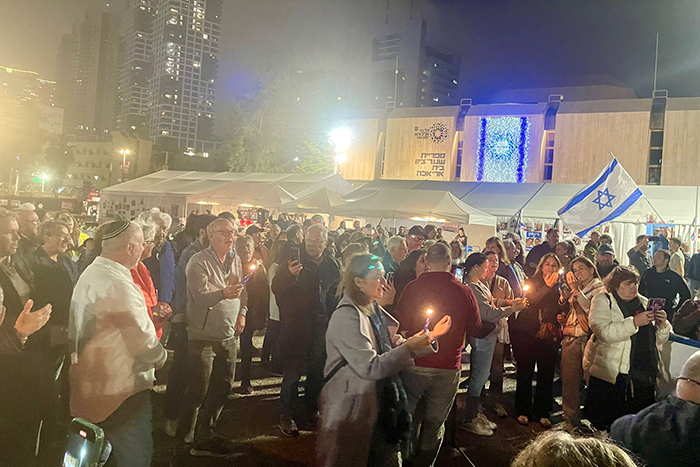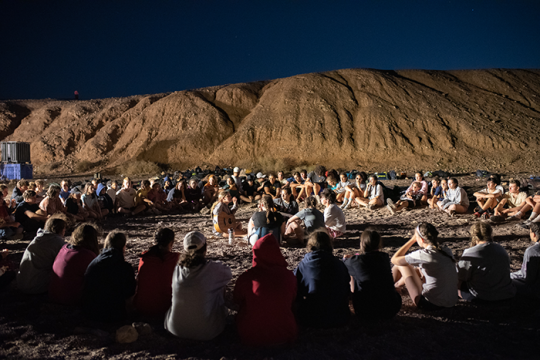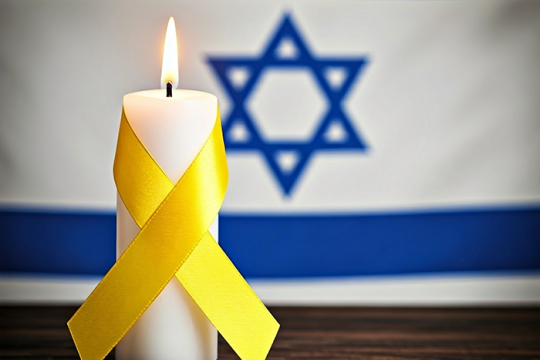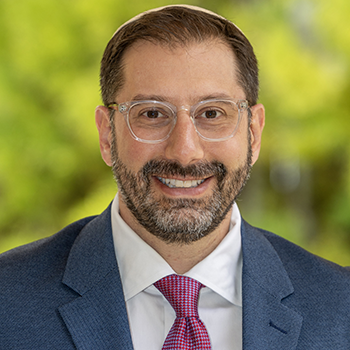
The horrific and tragic morning of October 7, 2023 remains vividly seared into my memory. As I awoke to the constant buzz of updates on my phone that fateful Shabbat morning of Simchat Torah, I saw the death toll rise. At first, 40 were reported dead, then 100. Days later, we learned that almost 1,200 people were murdered and over 250 had been kidnapped into Gaza, marking this as the worst day in Israeli history.
There is a debate in the world of Jewish/Israel education right now as to whether the events of October 7, 2023, represent a blip – albeit monumental – on the face of Israeli history alongside other wars, terrorist attacks, and operations; or a game-changing tidal wave that has changed the face of Israel and the Jewish people from now on?
I believe it was the latter. As we mark the two-year anniversary of October 7 and the start of the ongoing war, we gain some historical perspective about that day’s significance for the State of Israel, the Jewish people, and the world.
Historian and author Yuval Noach Harari has described the attack by Hamas as potentially the most significant turning point in Jewish history since the destruction of the Temple in 70 CE. He argues that its significance is marked by a profound spiritual crisis for Judaism. October 7, like other catastrophic moments in our history, demands both mourning and learning.
Jewish tradition teaches: “Lo bashamayim hi” – the Torah is not in heaven (Deuteronomy 30:12). The wisdom we need is here, if we are willing to wrestle with it.
Here are five lessons of October 7, 2023, drawn from the Torah and Jewish values:
- Never Take Jewish Safety and Security for Granted – “Hishamer Lecha U’shmor Nafshecha Me’od” – “Guard Yourself Very Carefully” (Deuteronomy 4:9)
On October 7, we were painfully reminded of what it is to be vulnerable. Even in a sovereign Jewish state with extraordinary defenses, we have enemies who seek our destruction. Security requires vigilance, humility, and collective responsibility. The command to guard ourselves cannot be outsourced or ignored.
- Strive to be Human – “B’makom She’ein Anashim, Hishtadel L’hiyot Ish.” – “In a Place Where There Are No Human Beings, Strive to be Human.” (Pirkei Avot 2:5)
When institutions faltered and chaos reigned, Israelis embodied this teaching, filling the void with compassion, courage, and a refusal to let despair define them. Their resilience testifies to the power of a people who chose to answer inhumanity with deeper humanity. Jewish communities in North America and around the world responded with generosity, advocacy, and comfort.
The North American Reform Movement continues to support Israeli Movement for Progressive Judaism, which has provided care, continued to call for an end to the war and the hostages’ return, and brought together Israelis from all walks of life marking the end of Shabbat with Havdalah ceremonies at Hostage Square.
- Leadership Matters – “B’ein Chazon, Yipara Am.” – “Without Vision, a People is Unrestrained” (Proverbs 29:18)
The failures of leadership surrounding October 7 reveal the dangers of distraction, division, and cynicism. The Torah reminds us that leaders must be like Moses, who bore the people’s burdens, or Deborah, who united a fractured Israel. Our moment demands leaders with vision, accountability, and moral courage. The fact that there still has been no official state investigation into the military and intelligence failures on October 7 is a glaring attempt to divert accountability.
- The Human Toll is Shared – “Ki Beiti Beit T’fillah Yikarei L’chol Ha’amim.” – “For My House Shall Be a House of Prayer for All Peoples” (Isaiah 56:7)
While the people of Gaza are often spoken of as “the enemy,” Jewish tradition does not permit dehumanizing others or celebrating their suffering. Compassion requires us to see the civilians in Gaza who are also caught in violence they did not choose.
The Torah insists that all people are created b’tzelem Elohim – in the image of God. We must reckon with the catastrophe that exists in Gaza and all the victims of this war. If we do not, we risk losing our own humanity. When the war ends, rebuilding Gaza and creating a viable, non-Hamas governing force will prove a formidable challenge. Memory must transform us into agents of compassion and justice. If October 7 becomes a story only of victimization, we will be neglecting the Torah’s demand to turn pain into purpose.
- Find Connection – “Al Tifrosh Min HaTzibbur." – “Do Not Separate Yourself From The Community.” (Pirkei Avot 2:4)
The “October 8th Jew” is not only the Israeli survivor or mourner, but also the Jew in Boston, Nebraska, London, or Buenos Aires who woke up to a different reality on October 8, 2023. For many, October 7 shattered a sense of safety and belonging. Antisemitism surged on campuses, in protests, and daily life. Yet for countless Jews, this rupture became a spark: young adults came to Shabbat dinners for the first time, families enrolled their children in Jewish schools, and communities rediscovered the strength of togetherness. These October 8th Jews remind us that Jewish identity is not only forged by trauma, but also by resilience, solidarity, and searching for meaning. Let us continue to welcome all those seeking meaning, community, and Jewish identity.
Jewish history has taught us to mourn, remember, and rebuild. The Torah calls on us to survive, sanctify life, demand vision from leaders, and carry our memories as moral obligations. The test before us is whether we can turn tragedy into redemption and emerge stronger.
Please join us on October 8, 2025, at 8:00 ET for "Two Years Later: Stories, Memory, and the Echoes of October 7," a conversation about memory and stories with author Lee Yaron, author of 10/7 100 Human Stories, and Rabbi Josh Weinberg.
To hear eyewitness testimonies of the events of October 7th, visit the Edut 710 project. Edut 710 was established to preserve memories of the attacks and create a comprehensive, professional digital archive of testimonies (edut) to be maintained at the National Library of Israel.
Related Posts

From Ancient Ruins to Modern Marvels: 10 Must-See Sites in Israel

5 Life-Changing Reasons to Join Yallah! Israel This Summer

